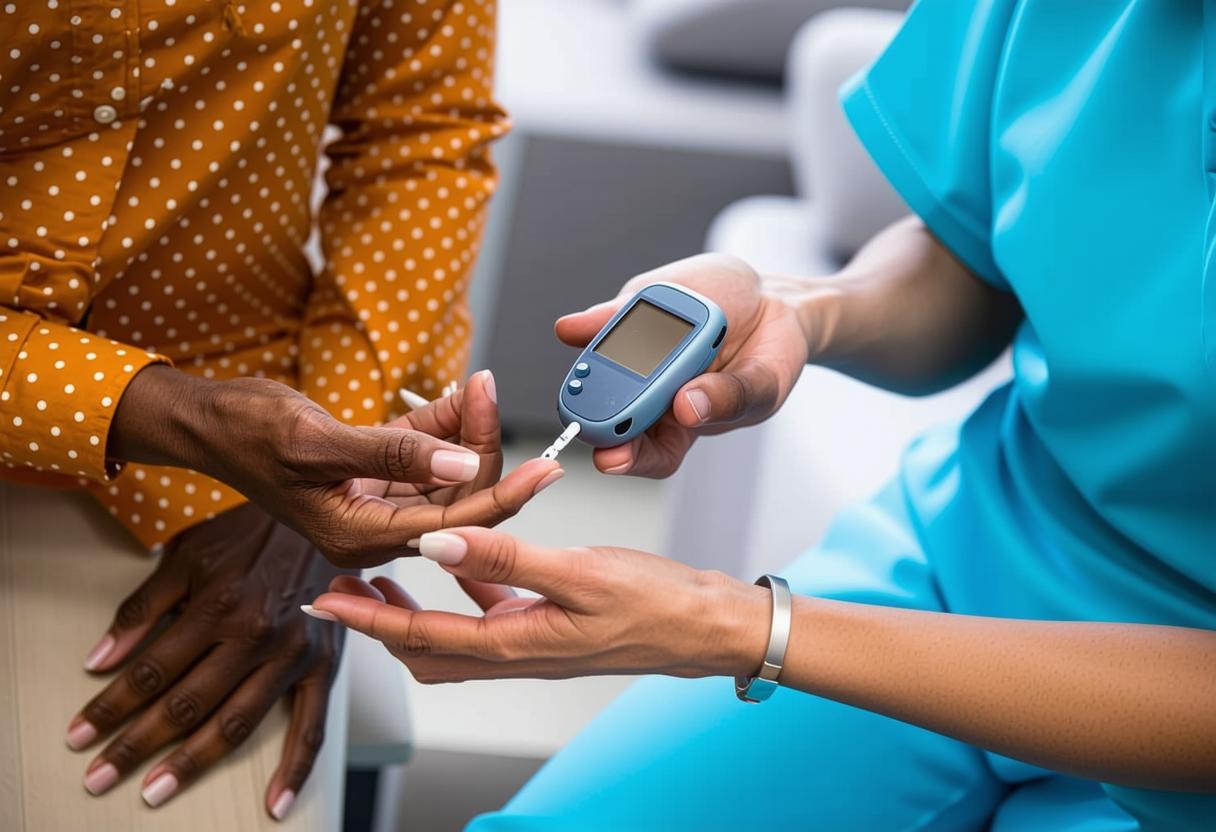Empower Your Health: Strategies for Diabetes Prevention and Management
|
By Sheldon Riklon, M.D.
Diabetes remains a critical health issue in the U.S., affecting approximately 38 million adults, with an additional 97 million at risk due to prediabetes. As we observe National Diabetes Awareness Month, it’s crucial to explore ways to prevent and manage this condition for a healthier lifestyle.
What is Diabetes?
Diabetes is a chronic condition that impacts how your body converts food into energy.
When you consume food, it’s broken down into sugar, or glucose, which enters your bloodstream. As glucose levels rise, the pancreas releases insulin, a hormone that facilitates the conversion of glucose into energy.
In diabetes, the body either doesn’t produce sufficient insulin or can’t use it effectively, leading to elevated blood sugar levels. This can result in severe health issues such as cardiovascular disease, stroke, vision impairment, nerve damage, and kidney problems.
Types of Diabetes
- Type 1 Diabetes: An autoimmune disorder where the body attacks pancreatic cells, hindering insulin production. Individuals with Type 1 require regular insulin intake.
- Type 2 Diabetes: The most prevalent form, accounting for 90-95% of cases. It involves insulin resistance and is often linked to lifestyle factors like diet and exercise.
- Gestational Diabetes: Occurs during pregnancy when insulin production is insufficient. It typically resolves post-pregnancy but increases the risk of Type 2 diabetes for both mother and child.
- Prediabetes: Characterized by elevated blood sugar levels, it’s a precursor to Type 2 diabetes and heightens the risk of heart disease and stroke.
Proactive Health Measures
Managing diabetes requires dedication, but small lifestyle adjustments can significantly impact your health.
- Assess Your Risk Factors
Risk factors include inactivity, obesity, age over 35, and prediabetes.
- Monitor Key Health Indicators
Regularly checking blood glucose, blood pressure, and cholesterol helps you make informed decisions about diet, exercise, and medication.
- Adopt Healthy Lifestyle Habits
Incorporate balanced meals, regular physical activity, smoking cessation, and adequate sleep into your routine. Start gradually and build sustainable habits.
- Achieve and Maintain a Healthy Weight
Exercise enhances insulin efficiency, stabilizes blood sugar, reduces heart disease risk, and improves mood and stress levels.
- Adhere to Prescribed Medications
Consistent medication use is crucial for maintaining optimal blood sugar levels, even when symptoms are not apparent.
- Engage in Diabetes Education Programs
Diabetes Self-Management Education and Support (DSMES) programs offer essential knowledge and skills for effective diabetes management. Participants collaborate with educators to develop personalized care plans and learn practical skills such as:
- Nutrition and meal planning
- Physical activity
- Proper medication use
- Blood sugar monitoring
- Complication prevention
- Problem-solving and coping techniques
The Institute for Community Health Innovation collaborates with pharmacies across Arkansas to provide accredited DSMES programs. Visit communityhealth.uams.edu for a complete list of participating pharmacies.
Most insurance plans, including Medicaid, cover DSMES programs for those diagnosed with diabetes. To locate a program near you, visit diabetes.org.
Whether managing diabetes or aiming to prevent it, small, consistent actions can lead to significant health improvements. By focusing on nutrition, activity, and support, you can take control of your health and minimize the risk of severe complications.
Sheldon Riklon, M.D., is a professor in the University of Arkansas for Medical Sciences (UAMS) Department of Family and Preventive Medicine and a co-investigator with the UAMS Institute for Community Health Innovation.

